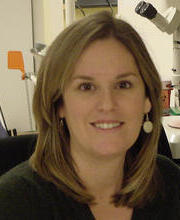Caroline Erter Burns

Ischemic heart disease (IHD) is the most prevalent cause of death in the US, resulting from the human heart's failure to repair damaged myocardium following injury. Instead, scar tissue is deposited that diminishes heart function and/or causes sudden cardiac death. Recent findings, however, have fueled speculation that partial or full myocardial regeneration following ischemic injury might be achievable with novel therapeutic interventions. First, multi-potent progenitor cells capable of forming all of the differentiated cardiac lineages have been discovered in the mammalian heart. Secondly, adult zebrafish were found to regenerate myocardium following surgical resection of the ventricle apex. These data suggest that the capacity to regenerate heart muscle is a primitive trait that has been attenuated over time and, therefore, it is possible that endogenous cardiac progenitor cells (CPCs) could be activated in mammals to stimulate new myocardial production instead of scarring. To that end, our long-term goal is to exploit the genetic and cardiac regenerative attributes of zebrafish to characterize CPC properties in vivo and to identify the critical molecular programs driving myocardial regeneration.
Our goal is to identify the normal mechanisms by which CPCs are specified, expanded, and differentiated during embryonic development to ultimately augment the activity of either endogenous or transplanted CPCs for clinical use. The zebrafish is an excellent model system to study fate determination and stem cell biology as there are distinct genetic and transplantation advantages. As the developmental genetics of organ formation are highly conserved between fish and mammals, the pathways affecting fate decisions in zebrafish can be directly compared to that of humans. We are identifying master CPC pools within the developing teleost and dissecting their initial induction using both genetic and chemical-based screening strategies. Moreover, we have built new genetic tools that allow us to prospectively isolate these progenitor populations based on fluorescent marker gene expression. These tools will allow us to compare CPCs found in the embryo to those found in the adult during regeneration. The discovery that a relatively dormant adult CPC population can be activated upon injury by specific developmental programs to migrate, proliferate, and differentiate into new myocardium in zebrafish would have profound implications for regenerative medicine.
Contact Information
Department of Cardiology, EN13
300 Longwood Avenue
Boston, MA 02115
